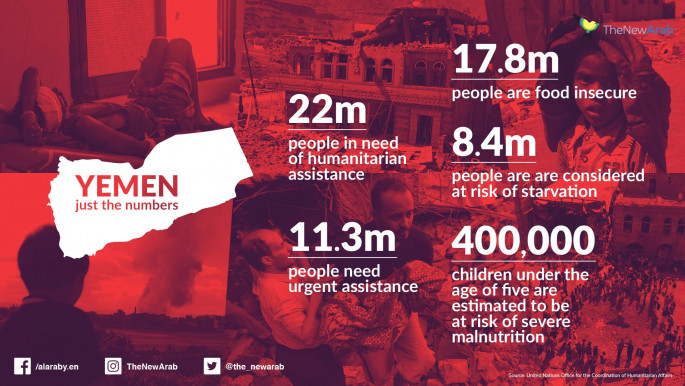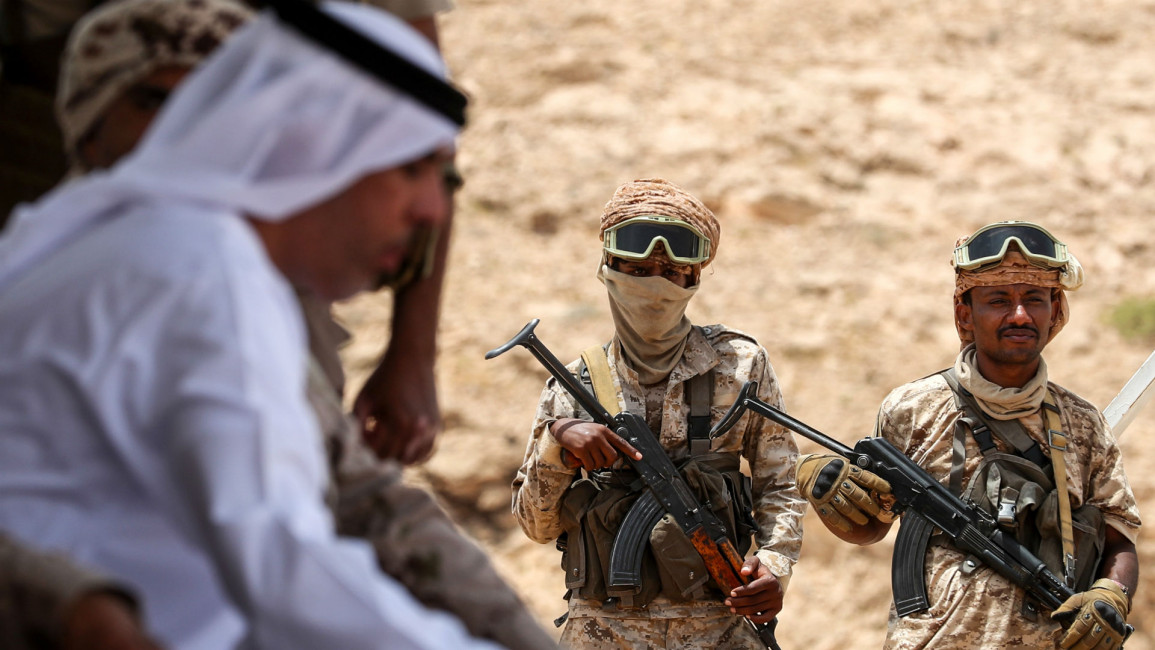
UAE and Yemen's Al-Islah: An alliance of convenience only
The former enemies shook hands, sat together and talked in the first meeting of its kind since Yemen's war broke out in 2015.
Over the past four years, the UAE and Al-Islah have had one matter in common: fighting the Houthi group in Yemen.
But their relationship has been fraught, laden with mistrust. The two sides have remained at loggerheads due to their differing political and ideological convictions.
While their apparent rapprochement last week looked headed for reconciliation, it would be wise to avoid thinking their differences will vanish for good, for the schism between UAE and Al-Islah party runs deep.
Founded in 1990, Al-Islah gained popular support in Yemen, becoming the country's second biggest political party in 2014. Its political wing is seen as the Yemeni branch of the Muslim Brotherhood, and the party was blacklisted as a terrorist organisation by Saudi Arabia in 2014 because of this.
In the past few years, relations with Saudi Arabia have warmed, due to Al-Islah's role in fighting the Houthis.
Now, its relationship with the Emirati camp may also be changing, but will it pledge allegiance to the Emirati agenda, and harmony with UAE's policy in Yemen?
Befriending the enemy to fend off worse
Over the past four years, the UAE has treated the Al-Islah party with a very heavy hand, and has worked to weaken it through killing its leading members and vocal figures.
Since 2014, the Houthis have attacked, kidnapped and detained its members in Yemen's north, while the UAE has targeted its affiliates in the south. UAE rhetoric concerning the war on Al-Islah claims such attacks are justified because the political branch of the organisation operates under the umbrella of the Muslim Brotherhood, and is therefore linked with "terrorist" and "radical" groups.
While contact with armed groups may exist, it is not necessarily evidence of a strategic alliance.
 |
It would be wise to avoid thinking their differences will vanish for good |  |
Last year, Emirati foreign affairs minister Anwar Gargash said the Al-Islah party had "declared its disengagement from the Brotherhood terrorist organisation".
"We have an opportunity to test the intentions and to give priority to the interest of Yemen and the Arab region," he said.
Obviously, Al-Islah's zeal for rapprochement with the UAE stems from its desire to fend off further evils. The party's leadership is well aware of the hate and assassination campaign against its members, but are still desperate to put an end to the conflict with the UAE and its militias in the south. Consequently, they have been forced to team up with a regional bully.
While Adnan Al-Odaini, an eminent member of Al-Islah, said the party had no problem with the UAE, such a statement is far from the truth.
 |
|
Reports have uncovered that the Emirates led a team of foreign mercenaries to assassinate Al-Islah's leading members in Aden. It is unlikely, therefore, that in the minds of Al-Islah, Emirati violations in Yemen will fade away any time soon, regardless of an exchange of pleasantries.
UAE seeks gains
Not only does Al-Islah intend to achieve gains from such a rapprochement, but so does the UAE. As a key member of the Saudi-led coalition fighting the Houthis in Yemen, the UAE is in part responsible for the tragic consequences of the protracted war there.
Now that the UAE looks prepared to partner with Al-Islah, it is likely hoping that their alliance will change the dynamics of the war, and accelerate a victory against the Houthis.
The Saudi-led coalition's western allies including the US and UK have lately hardened their stance on the intervention in Yemen.
 |
Al-Islah has been forced to team up with a regional bully |  |
The pressure on Saudi Arabia and UAE - especially in light of the Khashoggi affair - to end the war has reached a new high. As a result, the two countries are likely feeling the need to focus on one common enemy - the Houthis - and reach an understanding with the other "enemy" - the Al-Islah party.
The UAE may also be looking for a way to improve the negative image it has earned in Yemen, due to its constant efforts to undermine the legitimate government there, and since information on its murderous agenda in Aden, and the systematic killings of Al-Islah members, has come to light.
Obviously, coming to agreement with Al-Islah would help in this endeavour.
In essence, it would be premature to say that the UAE and Yemen's Islah Party have repaired their relations after just a few short meetings, let alone suggest they may be working towards a shared and coherent vision in Yemen.
Now, we must wait and see if Al-Islah members are able to live without the fear of UAE-plotted assassinations in the south, and if Al-Islah anti-Houthi fighters in the north receive the support they need on the battleground. Only then will we see if the two sides have really put aside their differences, or if this temporary alliance of convenience will prove unsustainable.
The writer is a Yemeni journalist, reporting from Yemen, whose identity we are protecting for their security.
Join the conversation: @The_NewArab
Opinions expressed in this article remain those of the author, and do not necessarily represent those of The New Arab, its editorial board or staff.


![President Pezeshkian has denounced Israel's attacks on Lebanon [Getty]](/sites/default/files/styles/image_684x385/public/2173482924.jpeg?h=a5f2f23a&itok=q3evVtko)



 Follow the Middle East's top stories in English at The New Arab on Google News
Follow the Middle East's top stories in English at The New Arab on Google News


